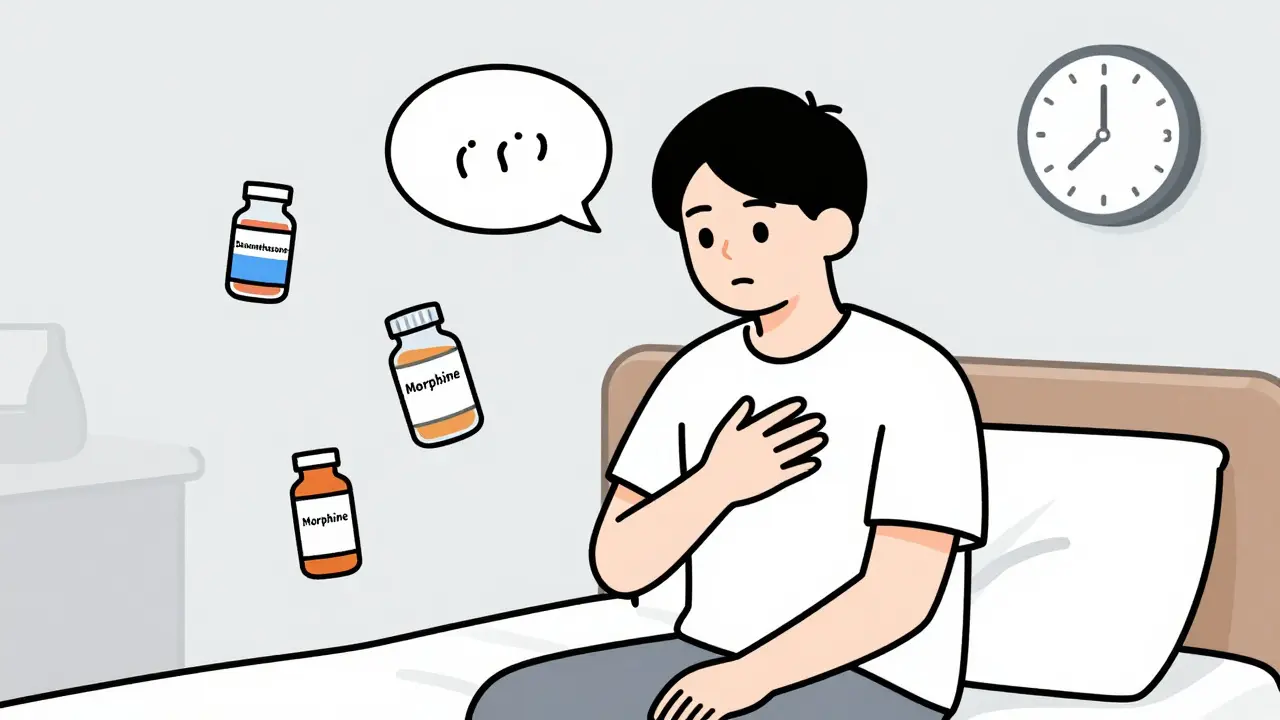Hiccup Remedies: Quick Ways to Get Rid of Hiccups
If a hiccup episode won’t quit, you’re not alone. Almost everyone gets stuck with those sudden spasms, and most of the time they’re harmless. The good news? You can usually end them in a minute or two with a few easy tricks you probably already have in the kitchen.
Simple Home Tricks That Really Work
First, understand why hiccups happen. A tiny nerve called the phrenic nerve controls the diaphragm. When it gets irritated—by a big meal, a sudden temperature change, or even excitement—it sends a quick signal that makes the diaphragm contract. That sudden jump creates the “hic” sound.
One of the oldest tricks is the breathing pause. Take a deep breath, hold it for as long as you comfortably can, then exhale slowly. The extra carbon dioxide in your blood relaxes the diaphragm and can stop the spasm. Try it three times in a row for the best chance.
Another breathing trick is the “paper‑bag method.” Breathe in and out of a small paper bag (never a plastic one) for about a minute. The bag raises carbon dioxide levels and often calms the hiccup reflex. If you feel light‑headed, stop immediately.
Liquid tricks are easy and usually around the house. Sip a glass of cold water quickly, or swallow a teaspoon of sugar without chewing. The grainy texture of sugar can reset the nerve signals, while the cold water shocks the diaphragm into a new rhythm.
Got a lemon? Squeeze fresh lemon juice into a teaspoon and swallow it fast. The sour taste stimulates the mouth’s nerves, which can interrupt the hiccup cycle. Some people swear by a spoonful of honey mixed with a little apple cider vinegar for the same effect.
If you like a bit of pressure, try the “ear‑press” technique. Pinch the soft part of your ear with your thumb and index finger while swallowing water. The pressure change in the ear canal can help reset the diaphragm’s rhythm.
When to Seek Medical Help
Most hiccups fade in minutes, but a few can last longer than 48 hours. Persistent hiccups may be a sign of an underlying issue like acid reflux, a nerve problem, or a medication side effect. If they’re keeping you from eating, sleeping, or breathing normally, see a doctor. A health professional may check for infections, metabolic disorders, or neurological causes and suggest prescription‑strength options.
Here’s a quick checklist to try before calling the doctor:
- Hold your breath for 10‑20 seconds.
- Drink a glass of cold water quickly.
- Swallow a teaspoon of sugar or honey.
- Press on your ear while swallowing.
- Use the paper‑bag breathing trick for up to one minute.
If none of these work within a few minutes, or the hiccups keep coming back day after day, it’s time to get medical advice. A doctor can run tests and may prescribe muscle relaxants or other meds that target the hiccup reflex.
Bottom line: most hiccups are a brief nuisance, and a handful of simple home remedies can usually end them fast. Keep the list handy, try a couple of tricks, and you’ll be back to normal conversation in no time.
Hiccups Triggered by Medications: Common Causes and Proven Remedies
Medication-induced hiccups are a common but often overlooked side effect. Learn which drugs cause them, why they happen, and proven remedies-from sugar to baclofen-that actually work.
Read moreHow to Prevent Hiccups: Simple Tips to Stop the Annoying Spasms
Learn fast, science‑backed ways to prevent hiccups. From breathing tricks to smart eating habits, stop those annoying spasms before they start.
Read more
